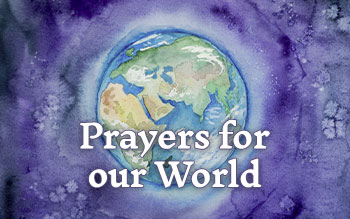Displaying items by tag: North Africa
Reaching the unreached
The Ceesa people have a unique desert culture and their own distinct language. There is evidence that they were Christians once, but they are now Sunni Muslims. As far as anyone knows, there has not been a single Ceesa Jesus follower in seven hundred years. Mohammed, a Ceesa farmer, saw a man picking and eating olives from a tree near his house. Rather than chase the stranger away, he introduced himself and welcomed him into his home for some delicious dates. The man, Ali, was a Christian who had come to Ceesa to share the good news. As he ate he began telling his host about Isa. When Mohammed heard the name, his eyes got big. He said, ‘I have seen Isa in my dreams! I want to know more about him!’ Ali continued to explain the good news, soon Mohammed gave his life to Jesus, and a church was planted.
North Africa: Christian parenting
Dr Maged presents The Coach, an Arabic TV programme on SAT-7. He said there’s a lack of awareness of how to raise children in a healthy way in North Africa. Many cultures are based on a patriarchal model where women and children are not encouraged to speak up, share an opinion, or disagree with the male head of the family. Many parents use parenting techniques of beating, shouting and intimidation. This is where The Coach steps in, discussing the parenting issues that many families face. The programme encourages healthy, open conversations between parents and children, preparing them to cope with the world and helping them feel safe within the home environment. Children can express themselves or admit to a mistake without the fear of being beaten or belittled. It is clear that the programme is making a real-life impact in Arab families. Dr Maged’s end goal is for healthy parenting to become the norm for parents.
Advent prayer resource
SAT-7 constantly receive testimonies of people whose lives are being transformed by Jesus. Some grew up in Christian homes, others first met with Jesus through their television screens. Some had a chance encounter with a Christian and wanted to find out more, others first discovered His joy through picking up a Bible in their own language. SAT-7 have just produced a prayer guide to give us a glimpse into some of their stories. Over the course of Advent they will take people on a journey across the Middle East and North Africa, through the 25 countries where they work, visiting a different country each day, and discovering plenty of reasons to rejoice – as well as ideas for prayer requests.
Christians persecuted in 3 of 4 nations globally
'Have been harassed in more countries than any other religious group'
There are some 197 countries around the world.
And in 144 of them, Christians are persecuted, according to a report commissioned by the British government.
There is widespread evidence showing that “today, Christians constitute by far the most widely persecuted religion,” the report said.
It found that “Christians have been harassed in more countries than any other religious group and have suffered harassment in many of the heavily Muslim countries of the Middle East and North Africa.”
There are some 245 million Christians living in the top 50 countries for persecution and they suffer “high levels” or worse. Previously, only one country, North Korea, was classified as having “extreme” persecution. Now there are 11 countries.
Turkish journalist Uzay Bulut, a senior fellow at the Gatestone Institute, noted “persecution against Christians and other non-Muslims is not about the ethnicity, race or skin color of either the perpetrators or the victims; it is about their religion.”
In Africa, he said, “various Islamist groups and individuals are attacking and attempting to annihilate Christians for being Christian. If these crimes are not stopped, it is highly likely that the fate of the African Continent will be like that of the Middle East: Once it was a majority-Christian region; now, Christians are a tiny, dying, defenseless minority.”
The British report is the “Bishop of Truro’s Independent Review for the Foreign Secretary of FCO Support for Persecuted Christians.”
The FCO is the nation’s Foreign and Commonwealth Office.
The bishop, the Rt. Rev. Philip Mounstephen, explained: “The Independent Review was announced at Christmas and this Interim Report is published in the Easter season. Both of these great festivals remind us that weakness and vulnerability are at the heart of the Christian faith. Jesus Christ was born into poverty and laid in a feeding-trough. He died as a victim of persecution himself. Given that, it is hardly surprising that many of his followers today count among the weakest and most vulnerable people on the planet. It is to them, to their needs and to their support, that this Interim Report is dedicated.”
He wrote that in addition to Christians being the most targeted, “the evidence suggests that acts of violence and other intimidation against Christians are becoming more widespread.”
The report said that “in some regions, the level and nature of persecution is arguable coming close to meeting the international definition of genocide.”
It said the “eradication of Christians and other minorities on pain of ‘the sword’ or other violent means was revealed to be the specific and stated objective of extremist groups in Syria, Iraq, Egypt, northeast Nigeria and the Philippines.”
“An intent to erase all evidence of the Christian presence was made plain by the removal of crosses, the destruction of church buildings and church symbols,” the report said.
“The killing and abduction of clergy represented a direct attack on the church’s structure and leadership. Where these and other incidents meet the tests of genocide, governments will be required to bring perpetrators to justice, aid victims and take preventative measures for the future.”
Christianity, in fact, “now faces the possibility of being wiped out in parts of the Middle East where its roots go back further. In Palestine, Christian numbers are below 1.5 percent, in Syria the Christian population has declined from 1.7 million in 2011 to below 450,000 and in Iraq, Christian numbers have slumped from 1.5 million before 2003 to below 120,000 today.”
In some parts of the world, “extrajudicial killings and the enforced and involuntary disappearance of Christians are also widespread,” the report said.
Bulut cited the destruction of a Christian school by Muslims in Uganda, a church in Niger burned by Muslims and terror attacks in Burkina Faso that left 29 Christians dead.
In one incident, the assailants “asked the Christians to convert to Islam but the pastor and the others refused.”
“They ordered them to gather under a tree and took their Bibles and mobile phones. Then they called them, one after the other, behind the church building where they shot them dead.”
He said that terrorist groups are not the only sources of persecution in Africa as many Muslim governments and individuals also target Christians.
We must pray for our Indian brethren, asking God to preserve the faith in a subcontinent where it is every bit as native as that which seeks to drive it out.
Article by WND
More at:https://www.wnd.com/2019/07/report-christians-persecuted-in-3-of-4-nations-globally/
Bahrain wants religious tolerance
For many years intercessors have prayed that Christian persecution would be replaced by interfaith tolerance. Recently the king of Bahrain took unprecedented action in the Middle East North Africa (MENA) region and issued a declaration of interfaith tolerance that he believes will promote similar action in other MENA nations. Muslim, Christian and Jewish scholars reviewed the king’s declaration and hope it will gain sign-offs globally from leaders of all faiths. Individual religious freedom is specified as one of the five points in the declaration. Terrorism, suicide bombing, sexual slavery, inciting extremism, and the abuse of women and children are specifically disowned. Preaching hatred and violence in the name of God is condemned as a desecration of His name. The king has also promised to build a museum of tolerance.
Libya: violence and persecution
Recent fighting between rival militias in Tripoli shattered a period of calm. Egyptian planes are now striking east Libya in response to an attack against Egyptian Christians on 29 May (see the previous article). There are three rival governments vying for control. Ongoing Christian persecution is fuelled by the anarchy and violent conflicts by Islamic militias. Both Libyan converts to Christianity from Islam and expatriate Christians are experiencing extreme pressure and high levels of violence, due to the freedom that the perpetrators have. Libya has enormous problems, but we have an even more enormous God. We can pray for the development of a unified government that will end the rising threat of IS. We can pray for the ports to function again, so that exporting oil and importing goods can resume and economic stability return. And we can pray for religious freedom to be established, and for many to listen to religious broadcasting (see the next article).
Morocco: SAT-7, the cry of a generation
With an average age of 29, Morocco has a young population. But, as in neighbouring North African countries, their horizons are limited. Some 22% of young men and 38% of young women are unemployed (as at June 2013). Most of those who do work are engaged in the informal sector without the security of a contract, guaranteed work or income. In an environment which can fuel frustration and depression, a new series of SAT-7 podcasts has a clear message that God accepts us, offers change and sets us free. ‘WE CAN CHANGE THE WORLD’ targets Moroccan and North African youth with messages of hope and wisdom, using a mixture of proverbs, comedy, rhymes and biblical values. Its presenter-producer, Hamid, says the short five-minute episodes aim to ‘change young people’s view of themselves and uncover deceptive views and ideas absorbed from culture and folk religion in a humorous way’.






